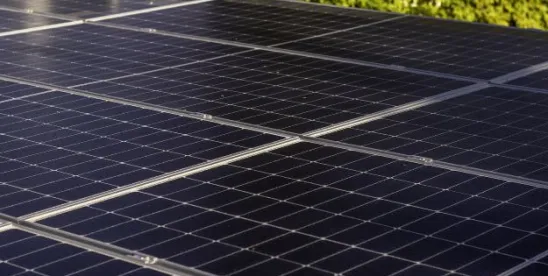On December 27, 2024, the Thai Cabinet relaxed regulations on solar rooftop installations with the introduction of the Ministerial Regulation Re: Designation of Type, Kind, and Size of Factories (No. 3), B.E. 2567 (2024) (the “Ministerial Regulation”). The Ministerial Regulation does away with the need to obtain a factory license (commonly known as a Ror. Ngor. 4) from the Energy Regulatory Commission (ERC) or Department of Industrial Works (DIW)[1] for all solar rooftop power generation installations located outside of industrial estates, irrespective of their production capacity. This relaxation came into effect on December 28, 2024.
Previously, the installation of such solar rooftops with a generating capacity exceeding 1,000 kW required a factory license. This move specifically targets solar power generation installations located on rooftops, terraces, or any part of buildings that can be occupied or used. It is noted that solar ground mounted and floating projects are not affected by the Ministerial Regulation.
As a result of the introduction of the Ministerial Regulation, the procedures for installing solar power panels on rooftops outside of industrial estates have been simplified, eliminating the need for companies and individuals to obtain factory licenses from the ERC.
Impacts on Ongoing Projects Located Outside of Industrial Estates
For companies currently in the process of obtaining the Ror. Ngor. 4, this requirement is no longer applicable. Correspondingly, the environmental safety assessment (ESA) report, which was a prerequisite for submitting a Ror. Ngor. 4 application, is also no longer required.
For applications already submitted to the ERC, no further action is required from the companies.
Projects Located Within Industrial Estates
Despite the relaxation on factory licensing requirements, electricity generation and sale from solar rooftop projects located in industrial estates under the Industrial Estate Authority of Thailand (IEAT) still require the usual Land Use Permit (IEAT 01/2) and the notification of business commencement in industrial estates for such electricity generation and sale business.
However, for self-consumption solar rooftop projects, the IEAT plans to exempt the abovementioned requirements. The exemption is currently under the IEAT’s internal discussion and development.
The IEAT expects to release its official notification and detailed procedures by mid-2025. Until then, these requirements remain applicable to all solar rooftop installations within industrial estates.
Next Steps on the Ministerial Regulation
The enactment of the Ministerial Regulation marks a significant step towards simplifying the regulatory process for solar rooftop installations in Thailand, encouraging more sustainable energy projects throughout the country.
As a leading law firm for projects and energy in Thailand, we are well-positioned to advise both local and international companies on all aspects of renewable energy.
This article was authored by Chumbhot Plangtrakul, Thaphanut Vimolkej, Jidapa Songthammanuphap, and Joseph Willan.
[1] Section 48 of the Energy Industry Act, B.E. 2550 (2007), as amended permits the ERC to act as a one-stop service unit which grants all permits and licenses required for energy businesses, instead of the lead regulators. This includes a Ror. Ngor. 4 required under the Factory Act, B.E. 2535 (1992), as amended. Therefore, the ERC is responsible for issuing a Ror.Ngor. 4 on behalf of the DIW, the lead regulator.





 />i
/>i
